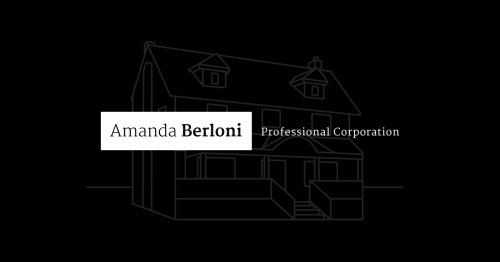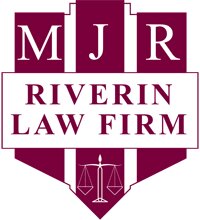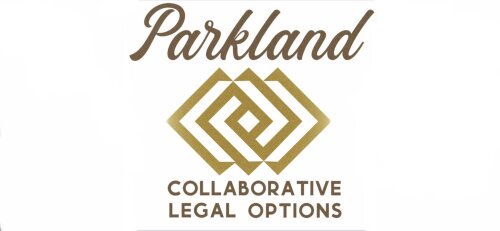Best Office Solutions Lawyers in Canada
Share your needs with us, get contacted by law firms.
Free. Takes 2 min.
Or refine your search by selecting a city:
List of the best lawyers in Canada
About Office Solutions Law in Canada
Office Solutions law in Canada encompasses a range of legal areas relating to the establishment, operation, and management of office environments. This includes legal aspects concerning commercial lease agreements, employment law, health and safety regulations, and technology infrastructure. Legal professionals specializing in Office Solutions aim to ensure that businesses comply with local, provincial, and federal regulations to create efficient, safe, and legally compliant workspaces.
Why You May Need a Lawyer
There are several scenarios where businesses might need legal advice in the field of Office Solutions:
- Signing lease agreements: Ensuring the terms of office space leases comply with legal requirements and protect the interests of the business.
- Workplace disputes: Handling conflicts or disputes involving employees, contractors, or vendors.
- Health and safety compliance: Ensuring office environments meet health and safety standards as mandated by law.
- Data protection and privacy: Aligning office technology solutions with laws related to data protection and privacy.
- Intellectual property issues: Protecting company innovations, processes, or trademarks.
Local Laws Overview
Office Solutions in Canada must adhere to a variety of local laws, including:
- Employment Standards Act: Governs employment practices and ensures fair treatment of workers.
- Occupational Health and Safety Acts: Sets safety standards to protect workers, with specific guidelines for office environments.
- Privacy Laws: The Personal Information Protection and Electronic Documents Act (PIPEDA) outlines responsibilities for handling personal data.
- Commercial Tenancies Act: Regulates the relationship between landlords and tenants in a commercial context.
- Building Codes and Standards: Ensures buildings meet necessary structural and accessibility standards.
Frequently Asked Questions
What should I consider when leasing office space?
Consider the lease duration, the cost of rent, any clauses for renewal, maintenance responsibilities, and the ability to modify the space to suit your needs.
How can I ensure my office meets health and safety regulations?
Regularly review provincial health and safety guidelines, implement adequate training programs, and conduct safety audits to identify potential hazards.
Do Canadian offices have specific accessibility requirements?
Yes, buildings should comply with the Accessibility for Ontarians with Disabilities Act (AODA) or similar regulations in other provinces, ensuring spaces are accessible to all individuals.
How do privacy laws affect my office IT solutions?
You need to ensure that data storage, processing, and sharing comply with PIPEDA, and implement robust cybersecurity measures to protect personal information.
What should be included in an employment contract for office employees?
Include compensation, job responsibilities, working hours, confidentiality terms, and termination provisions to clarify expectations and legal obligations.
Can my business sublease part of our office space?
Subleasing is often dependent on the terms of your original lease agreement. It typically requires the landlord's consent.
How can I safeguard my business’s intellectual property within the office?
Implement confidentiality agreements, maintain security protocols for sensitive documents, and file for patents or trademarks as needed.
What is the impact of COVID-19 on office legal requirements?
Businesses must adhere to evolving health guidelines, which may include social distancing protocols, sanitization practices, and flexible work arrangements.
How do I handle a workplace harassment claim?
Follow provincial guidelines for a formal investigation, maintain documentation, and consider legal counsel to address the issue effectively.
When do I need to seek legal advice if I’m closing an office?
Seek advice when negotiating lease terminations, handling employee layoffs, and ensuring compliance with all legal obligations related to the closure.
Additional Resources
Here are some resources that can offer additional support:
- Government of Canada - Employment and Social Development: Provides information on workplace standards and rights.
- Provincial Health and Safety Departments: Each province has its own body governing workplace safety standards.
- Office of the Privacy Commissioner of Canada: Offers guidance on privacy laws and regulations.
Next Steps
If you require legal assistance in Office Solutions, consider the following steps:
- Evaluate Your Needs: Define the specific legal issues you are facing.
- Research Qualified Lawyers: Look for legal professionals with experience in Office Solutions law.
- Consultations: Schedule consultations to discuss your situation with potential lawyers.
- Gather Documentation: Organize all relevant documents before meeting your lawyer to streamline the process.
- Stay Informed: Keep up to date with any changes in laws related to Office Solutions in your province or territory.
Lawzana helps you find the best lawyers and law firms in Canada through a curated and pre-screened list of qualified legal professionals. Our platform offers rankings and detailed profiles of attorneys and law firms, allowing you to compare based on practice areas, including Office Solutions, experience, and client feedback.
Each profile includes a description of the firm's areas of practice, client reviews, team members and partners, year of establishment, spoken languages, office locations, contact information, social media presence, and any published articles or resources. Most firms on our platform speak English and are experienced in both local and international legal matters.
Get a quote from top-rated law firms in Canada — quickly, securely, and without unnecessary hassle.
Disclaimer:
The information provided on this page is for general informational purposes only and does not constitute legal advice. While we strive to ensure the accuracy and relevance of the content, legal information may change over time, and interpretations of the law can vary. You should always consult with a qualified legal professional for advice specific to your situation.
We disclaim all liability for actions taken or not taken based on the content of this page. If you believe any information is incorrect or outdated, please contact us, and we will review and update it where appropriate.
Browse office solutions law firms by city in Canada
Refine your search by selecting a city.

















